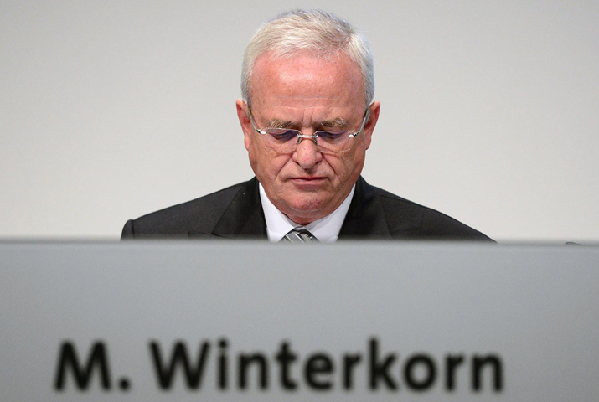A lesson from VW scandal for Chinese manufacturers
|
|
|
Volkswagen CEO Martin Winterkorn resigns on September 23, taking responsibility for the German carmaker's rigging of U.S. emissions tests in the biggest scandal in its 78-year history (163.COM) |
Some Chinese citizens are indignant over the Volkswagen scandal, not because the company has published false emission data but because they and Volkswagen have the same imaginary enemy--the United States.
The Volkswagen scandal has evolved into a somewhat of a tripartite saga in China. At the scandal's outbreak, many Chinese did not quite grasp the problem because in China, people cannot enjoy the diesel equivalent that Volkswagen and cars built according to European standards do. While people were reading articles analyzing the differences in environmental protection standards between European and U.S. cars that run on diesel and gasoline, analysts tried to tally up fines. These Chinese were gloating.
However, many Volkswagen car owners in China began questioning whether or not Chinese drivers have also fallen victims to poorly implemented standards--the United States may have slapped a heavy fine on the German car company, but how clean has Volkswagen's record been in China?
Some Chinese consumers have taken to researching and reviewing quality reports on Volkswagen cars in China in recent years. For example, in March 2013, CCTV revealed that Volkswagen direct gearboxes were defunct, and the company had to recall 384,181 cars with defective gearboxes as a result.
Other Chinese research enthusiasts brought up other violations of their country's environmental safety standards on the part of foreign car companies. For example, Beijing Hyundai Motor Co. Ltd. was fined 1.35 million yuan ($211,931) by Beijing environmental protection authorities for failure to comply with the municipality's emission regulations in the production of a sport utility vehicle. Beijing Hyundai was the first auto company fined for violation of environmental protection standards in China, but the fine was of a lesser magnitude than that which Volkswagen may suffer in the United States. Where, then, is the protection for China's consumers?
The situation has ultimately undergone some dramatic twists and turns. As the scandal develops, it is having increasingly dire consequences for Germany's economy--and that of Europe by association. Germany's brand used to represent credibility and high quality, but now, its image has taken a severe beating.
A contention that pops up with increasing frequency is that this scandal is a conspiracy. It's all too convenient that the United States has chosen to bring this incident to light now, connecting the Volkswagen scandal with the Toyota incident a few years ago.


